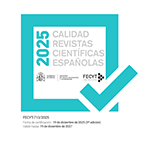The argumentative structure of the Wealth of Nations
Abstract
The paper sheds fresh light on what Adam Smith was doing in writing WN by looking at its place in his unaccomplished oeuvre. WN is just a partial implementation of a part of his project: the history and theory of law and government. In WN, the ‘Socratic method’ of persuasion and the ‘Newtonian method’ of didactical discourse coexist with moral discourse. Such coexistence allows smooth transition from (i) an argument aimed at persuading the public opinion of the advantage carried by non-aggressive commercial policies, high wages and some provision of public goods by the public authority; (ii) a simplified reconstruction of economic mechanisms and tendencies through either conjectural history or ‘systems’; (iii) an argument showing how all the oppressive inequality existent in modern societies is, besides deplorable on whatever moral standard, contrary to everybody’s interest.
Downloads
Article download
License
In order to support the global exchange of knowledge, the journal Iberian Journal of the History of Economic Thought is allowing unrestricted access to its content as from its publication in this electronic edition, and as such it is an open-access journal. The originals published in this journal are the property of the Complutense University of Madrid and any reproduction thereof in full or in part must cite the source. All content is distributed under a Creative Commons Attribution 4.0 use and distribution licence (CC BY 4.0). This circumstance must be expressly stated in these terms where necessary. You can view the summary and the complete legal text of the licence.
Iberian Journal of the History of Economic Thought is an open access journal that does not charge authors for article processing (submission, review or editing) or publication.









